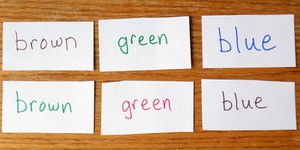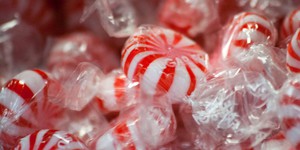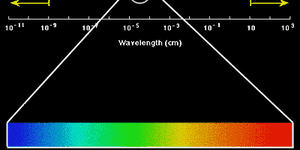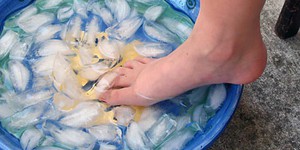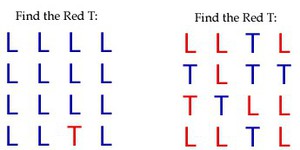Seventh Grade, Experiment in Neurobiology Science Projects (16 results)
Explore neurobiology, the science behind how people think, what they feel, how their senses work, and how well they remember. Observe volunteers in experiments, collect data about your own senses, or conduct a survey.
|
Can you pat your head with one hand while you rub your stomach with the other? This science project idea is kind of like doing that, but this project can actually give you some insight into how your mind works. The task is to name colors. It sounds simple enough, but see what happens when color words get in the way.
Read more
Featured
Have you heard that garlic powder is supposed to inhibit the growth of bacteria? Which do you think would make a better disinfectant: a solution of garlic powder or a solution of bleach? This project shows you a straightforward way to compare the effectiveness of different disinfectants (or other antimicrobial agents), by measuring zones of inhibition on a culture plate.
Read more
Did you know that some teachers give their students a peppermint candy on state testing days? Is it to give the kids sweet-smelling breath? Or are the teachers hoping for something more on the important testing day? In this human biology science fair project, you'll explore whether or not peppermint influences scores on different types of tests.
Read more
New
If someone asks you to draw a picture of a doctor, lawyer, or engineer, what first pops into your mind? The race and gender of the person you imagine might be shaped by your personal life experiences, such as whether you have family members in those professions, or what representations of them you have seen on TV or online. What do you think will happen if you ask an artificial intelligence (AI) program to generate the picture instead? Will pictures generated by AI reflect the true real-world…
Read more
You know how to make new colors by mixing paint or crayons. For example, you get green by mixing yellow and blue, or orange by mixing red and yellow. With paint, blue, yellow, and red are primary colors, which you can use to make other colors. Have you ever tried making colors with light? Are the primary colors the same ones you use for paint? Do this experiment and find out.
Read more
You might have heard the expression, "Take two aspirin, and call me in the morning." What if instead a doctor said, "Play two video games and call me in the morning"? Would you be shocked? Or think it was time for a new doctor? In this science fair project, you'll investigate whether video games, and other forms of mental distraction, have the power to relieve pain.
Read more
What makes you notice someone in a crowd? Why do some things stand out, while others melt into the background? In this science project you can investigate the psychology of how things get noticed, by studying how our brains perform a visual search.
Read more
New
Artificial intelligence (AI) programs can now generate photorealistic pictures of people who do not exist in the real world. How can you tell if a picture is of a real person or a fake, AI-generated person? What features of the picture do people use to decide whether the face is real or AI-generated? In this project, you will explore these questions as you ask volunteers to look at both real and AI-generated pictures of human faces.
Read more
Take a deep breath: freshly baked cookies, smoke from a wood fire, or a rose—your nose is an amazing smell detector! Your sense of smell can not only identify a huge variety of odors, but it is also incredibly sensitive. Think about how easily you can detect if someone in your neighborhood has a barbecue just by smelling the hints of smoke from the grill far away. How strong or weak you perceive an odor depends on its concentration. What do you think is the lowest concentration of a…
Read more
This project shows that our perceptions can change, even with the stimulus remains the same. A clear color difference in an image disappears after just 20 seconds of looking at another (special) image. Now you see it, now you don't!
Read more
Have you ever wondered how virtual reality works? With virtual reality, people feel like they are in one place while knowing they are somewhere else. In this project, you will show the same phenomenon on a smaller scale. You will use the McGurk effect to show how you can hear one sound, while knowing a different sound is physically there. First, you will produce such an experience using audio and video, and then measure the strength of the phenomenon.
Read more
Does talking on a cell phone make one a more dangerous driver? Here is an experiment you can do to investigate whether reaction time is adversely affected by a simultaneous phone conversation.
Read more
Many sports skills require quick reaction times: think of hitting a 95-mph fastball, returning a 100-mph tennis serve, or blocking a slapshot at the net in hockey. (The Experimental Procedure section below has one way to measure reaction time.) Is your right hand faster than your left? Can you improve your reaction time with practice? Do both hands improve if you only practice with one hand? Try relating your reaction time to real situations in your favorite sport. For example, calculate…
Read more
|
Explore Our Science Videos
Why Won't it Mix? Discover the Brazil Nut Effect
Build a Bird Feeder to Study Birds – STEM activity
Cricket Wicket Knockdown: 2020 Engineering Challenge


